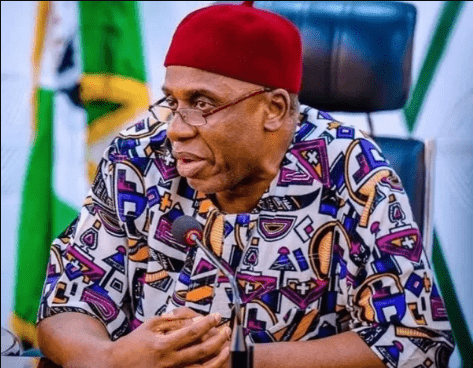About a fortnight ago, the Minister of Transportation, Rt. Hon. Rotimi Amaechi, in his characteristic slapdash manner dropped the final bombshell with regards to the disbursement of the Cabotage Vessels Financing Fund (CVFF) to indigenous ship owners. The Minister, who was in Lagos for a maritime event, announced that President Muhammadu Buhari had withdrawn the approval he granted earlier for the disbursement of the CVFF.
The Cabotage Vessels Financing Fund was created under the Coastal and Inland Shipping Act, otherwise known as the Cabotage Act, of 2003. It was set up to promote indigenous tonnage in shipping under the Cabotage regime.
The Fund provides for two percent contribution by ship owners involved in the coastal and inland shipping trade in Nigeria. In essence, the money accruing into the CVFF account is a contribution by ship owners. It is therefore not a public fund, although the law empowers the Nigerian Maritime Administration and Safety Agency (NIMASA) to be the custodian. The intention is for Nigerian ship owners to borrow money from the Fund at single digit interest rate to acquire vessels for Cabotage trade. However, since its establishment more than 18 years ago and with more than USD250 million accruing into the CVFF account, no ship owner has been able to borrow from it.
Minister Amaechi rubbed in whatever disappointment that was elicited by his pronouncement by blaming ship owners for the President’s withdrawal of the approval. According to Amaechi, the President withdrew the approval over issues of distrust and disunity among ship owners. He claimed that the ship owners went behind to gang up against him.
“The ship owners went around with negative campaigning and that approval was withdrawn…I fought for over two years and they gave us approval, and when it was time to disburse, they started to look for trouble. One day, I woke up and saw a directive from the President withdrawing the approval. Should I fight again? No, I am not fighting again,” Amaechi stated.
This pronouncement and similar comments by Amaechi can hardly surprise anyone that has been following the Minister and the Federal Government on the issue of the CVFF disbursement.
As a matter of fact, the stage for truncating the CVFF disbursement was set some weeks earlier when the Minister claimed that despite the President’s approval, the fund would not be disbursed because of a stumbling block erected by the Ministry of Finance, and called the stakeholders to stand up and fight. He asked the ship owners to write a letter of protest to President Buhari on the issue.
In one of our editorials at the time, we described all that was going on as a grand deception. How can the President give approval for disbursement of a fund, backed by the Attorney-General of the Federation, and the Ministry of Finance or its supervising Minister who statutorily have no role or voice in the management of the fund, will raise objection and stop the disbursement?
When this is placed vis-à-vis all the dribbling – the promises and failures, excuses upon excuses, setting up of one committee after the other, and throwing their work overboard that have characterized the disbursement efforts – government’s insincerity over the CVFF should have been apparent. It ought to have been clear by now to the indigenous ship owners that the present administration, like the ones before it, is not interested in releasing the money that has accrued under the CVFF scheme to them.
Similarly, the way and manner Amaechi and other government officials have been contradicting themselves over the CVFF, making pronouncements and counter-pronouncements that are alien to the Act establishing the Fund or its disbursement guidelines, the Ministry of Finance which has nothing to do with the Fund dragged into the picture, and made to stand as an obstacle to the disbursement, ought to have told the indigenous ship owners to look elsewhere.
Besides, Amaechi appears to be a specialist in finding excuses and shifting blames for tasks he lacks the enthusiasm to accomplish. He has been adept at using excuses to deny Nigerian ship owners access to the fund they contributed to acquire vessels.
It has become clear that Nigerian ship owners will have to look elsewhere for funds to acquire vessels. Indeed, it is our firm belief that the ship owners can survive without CVFF. Some of them started, and have been running their various shipping businesses without the CVFF. They should forget the CVFF and explore other shipping financing options, especially outside the shores of this country.
Apart from individual efforts, they could pull their resources together to float a formidable shipping line. They have tried to do this before, and can revive the initiative, this time with greater resolve. This way, they may prove to Nigerians that the talk about disunity of Nigerian ship owners is a mere cock and bull story.
All said, it is regrettable that Nigeria has continued to neglect its shipping sector that ought to generate huge revenues that will make foreign borrowing an anathema.
